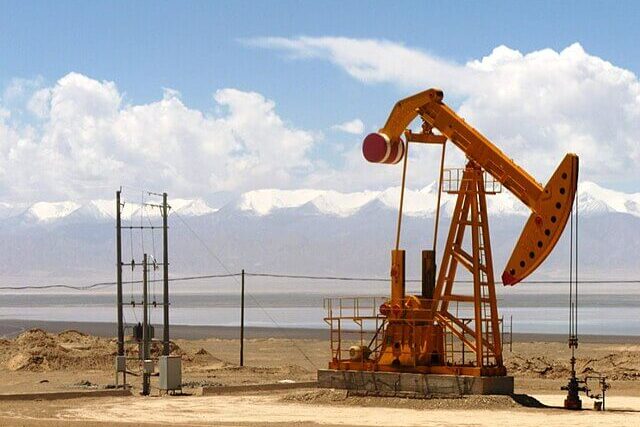
New research has unveiled a startling reality: the United States, despite touting climate leadership, accounts for more than a third of the anticipated global expansion in oil and gas production by mid-century. This revelation is particularly alarming given the US’s claims of environmental stewardship.
Following the US, Canada and Russia have the next most significant expansion plans, based on the anticipated carbon dioxide emissions from new developments. Iran, China, and Brazil also feature prominently, with the United Arab Emirates, host of this year’s UN climate summit, Cop28 in Dubai, ranking seventh in the list.
The report, titled “Planet wreckers: how 20 countries’ oil and gas extraction plans risk locking in climate chaos,” was published by the campaign group Oil Change International. It discloses that five “global north countries” – the US, Canada, Australia, Norway, and the UK – will be responsible for slightly over half of all the planned expansion in new oil and gas fields until 2050.
The report further emphasises the dire environmental consequences of these expansion plans. The greenhouse gas emissions stemming from these developments are predicted to surpass the 1.5°C limit agreed upon at Cop26 in Glasgow in 2021. The International Energy Agency had previously warned that to remain within this 1.5°C threshold, there should be no new oil and gas exploration and development. However, very few countries with oil and gas reserves are committing to this restraint.
Romain Ioualalen, the global policy lead at Oil Change International and co-author of the report, said countries must call a halt to fossil fuel expansion. “It’s simple: when you are in a hole, the first step is to stop digging,” he said. “The climate crisis is global in nature, but is atrociously unjust. A handful of the world’s richest nations are risking our future by willingly ignoring the calls to rapidly phase out fossil fuels.”
According to the findings, these 20 countries are collectively responsible for planning new oil and gas developments by 2050 that would release around 173 billion tonnes of carbon dioxide into the atmosphere. This is equivalent to the lifetime emissions of 1,100 coal-fired power plants or more than 30 years of annual emissions from the United States.
Conversely, if nations opt to refrain from bringing new oil and gas fields into production, it would result in a gradual reduction in global oil and gas production, declining by approximately 2% per year from now until 2030 and 5% per year from 2030 to 2050. This transition is vital to curbing the escalating climate crisis.
UN Secretary-General António Guterres has intensified his calls for countries to phase out fossil fuels, referring to continued dependence on them as “moral and economic madness.” He will convene a conference of world leaders later this month in New York, seeking fresh commitments to combat the climate crisis. Leaders will only be allowed to participate in this summit, held on the sidelines of the annual UN General Assembly, if they can demonstrate clear plans to reduce their greenhouse gas emissions.
The recent revelation that UK Prime Minister Rishi Sunak was made aware of the UN’s stringent participation policy before opting not to attend the UN General Assembly highlights the political complexities surrounding this issue. Sunak had previously pledged to expand the UK’s oil and gas operations in the North Sea, further complicating the global push for sustainable energy and climate action.
Tessa Khan, the executive director at the UK campaigning organisation Uplift, said: “We’re often told that the UK is a climate leader, but this research confirms that we’re now part of a tiny club of countries that are having an outsized role in driving the climate crisis. We know we cannot keep opening up new oil and gas fields if we want a habitable world, yet that is exactly what this government is doing.”
She added: “Rishi Sunak needs to stop bowing to the demands of the fossil fuel companies, who continue to rake in obscene profits while millions of us cannot afford to heat our homes.”
A spokesperson for the UK’s Department for Energy Security and Net Zero said: “This report ignores the great strides we have taken in reducing our dependence on fossil fuels. Between 1990 and 2021, we cut emissions by 48% while growing our economy by 65% – decarbonising faster than any other G7 country.
“Even in 2050, when we have reached net zero, it is estimated the UK may still be using a quarter of the gas we do now and, as well as strengthening our energy security, independent research has shown domestically produced gas is on average four times cleaner than imports.”
——————————————————————————
At Natural World Fund, we are passionate about stopping the decline in our wildlife.
The decline in our wildlife is shocking and frightening. Without much more support, many of the animals we know and love will continue in their decline towards extinction.
When you help to restore a patch of degraded land through rewilding to forests, meadows, or wetlands, you have a massive impact on the biodiversity at a local level. You give animals a home and food that they otherwise would not have had, and it has a positive snowball effect on the food chain.
We are convinced that this is much better for the UK than growing lots of fast-growing coniferous trees, solely to remove carbon, that don’t actually help our animals to thrive.
This is why we stand for restoring nature in the UK through responsible rewilding. For us, it is the right thing to do. Let’s do what’s right for nature!
Donate today at https://naturalworldfund.com/ and join in the solution!

